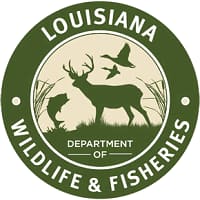Louisiana Opens 2014 Recreational Red Snapper Season in State Waters

The Louisiana Department of Wildlife and Fisheries announced the Louisiana weekend-only red snapper season will open on Friday, February 21, 2014, at 12:01 a.m. until further notice.
The “Louisiana-only” season
A weekend is defined as Friday, Saturday and Sunday, with the exception of Memorial Day and Labor Day, when Monday will be classified as a weekend day as well.
The bag and possession limit for the state season is two fish per person at a 16-inch minimum total length.
LDWF Secretary Robert Barham was given the authority to modify red snapper recreational seasons and daily harvest limits by the Louisiana Wildlife and Fisheries Commission in 2013.
The Louisiana Gulfward Boundary
In June 2012, the Commission took action to extend Louisiana state waters from three miles offshore to three marine leagues or approximately 9 nautical miles.
LDWF officials encourage fishermen to use caution and their own personal judgment when fishing beyond the three mile boundary that is currently recognized as federal waters, as it is fully expected that federal agents will continue to enforce federal law. Until the time when the U.S. Congress confirms Louisiana’s action, the battle will continue over Louisiana’s state water boundary.
Recreational Offshore Landing Permit
The Department reminds anglers that a Recreational Offshore Landing Permit is required in order to possess certain species, including red snapper. Anglers may obtain or renew the permit, free of charge at http://rolp.wlf.la.gov. Permit renewals can be completed up to 30 days prior to expiration.
The permit is required for any angler possessing tuna, billfish, swordfish, amberjack, grouper, snapper, hind, wahoo, cobia and dolphin, except those fishing on a paid-for-hire trip where the captain holds a permit.
Updating Your Contact Information
As the Department continues to move forward with the Louisiana Recreational Creel Survey (LA Creel), a new survey provides real-time data collection and the best data available to fishery managers, we encourage anglers to verify and update their license database information. Simple instructions are available at http://www.wlf.louisiana.gov/news/37374.

